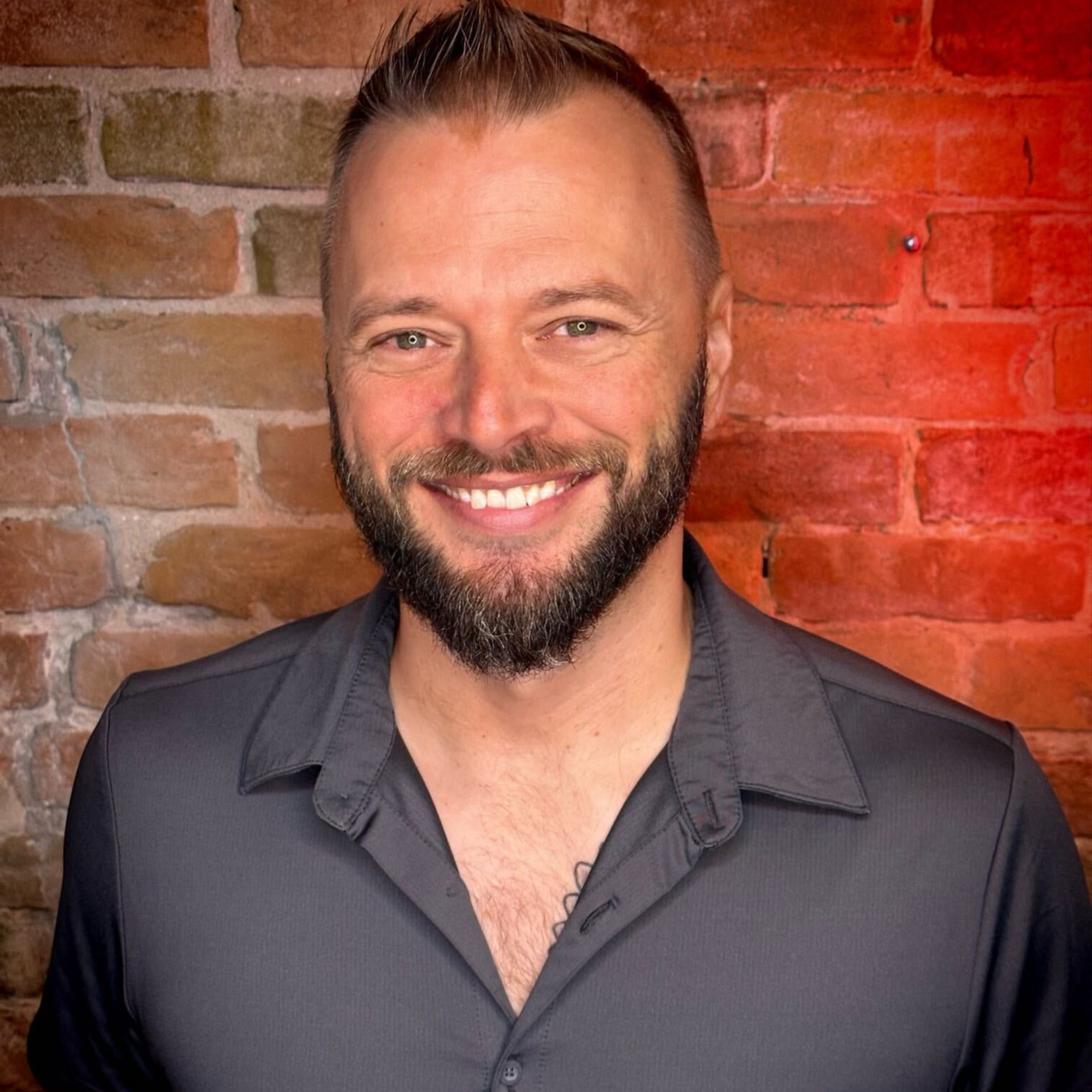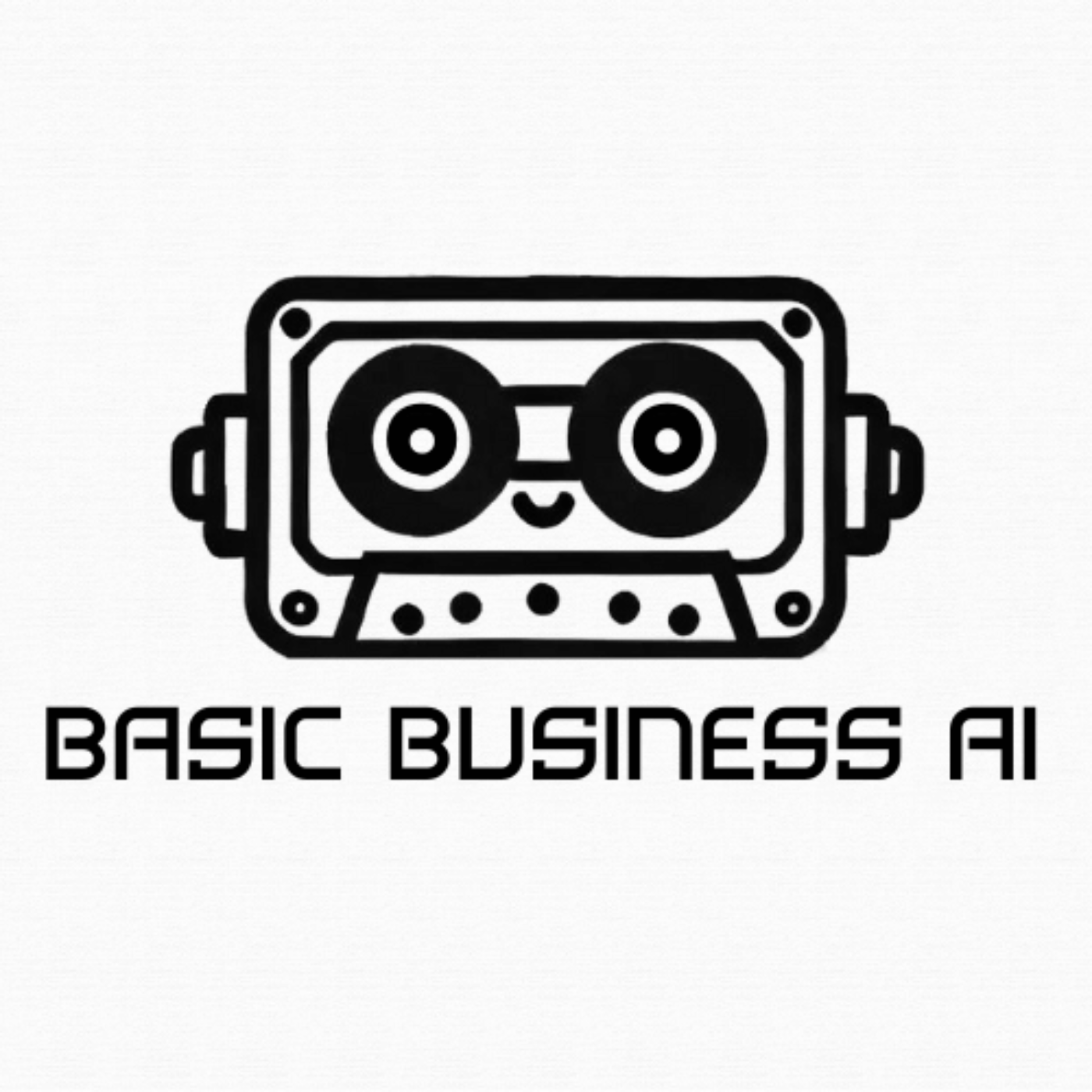Episode Transcript
[00:00:00] Speaker A: Welcome to Basic Business AI, a podcast dedicated to simple AI strategies for businesses who don't want to get an advanced tech degree or hire some marketing bro. I'm your host, Josh Thomas. You can find me on all social media.
We bring on regular business owners like you, like me, to discuss practical strategies, ideas and perspectives about AI without getting too far into the weeds of the tech. BBAI is sponsored by Anabots. Did you know companies that respond to customer inquiries in less than a minute have a 400% higher chance of closing the deal? Our AI powered assistants have an average response time of just 9 seconds, meaning you can close more sales without generating more leads. No tech skills are needed. You can get started in less than ten minutes. Go to Anabots AI to learn more once more, that's Anabots AIhdenhe. Today's guest is Marty Strong. Marty is an author and a middle market CEO of Healthcare Medical Services. Marty, welcome to Basic Business AI. From your perspective, how is AI reshaping the future of your industry?
[00:01:08] Speaker B: Well, it's two different categories. So the first category is pretty much generic to any business operation. So the predictive analytics aspect of AI is making it affordable for business owners and business operators, whether they're small businesses, mid sized businesses, or you're a leader of a division in a much larger organization, to do predictive analytics and modeling, which, let's say five years ago, before any of this existed in any form and in any fashion, you had to hire a person. You had to hire what's called an FP and a financial planning and analysis specialist to sit there and I crunch all the data, sort it all out, organize it, and then be ready for you to say, what are we going to look like? What's this going to look like in a week, ten days, two years, five years? And that's where the predictive analytics and the modeling helps business operators, because you can figure out, say, in healthcare, you know, how many patients are coming in, how many patients are staying, how long are they staying, how frequently do they return? It's called a readmission rate. And you can put all these things together, which in prior time, either had to have a highly compensated expert or pay a consultant to come in and do it, or you had to do it, basically spreadsheets and calculators. And it took a really long time. So what most business owners and most business leaders did is they just didn't do it. It was too time consuming. And therefore they were running. Yeah, they were running blind. The second category is, how does AI, and the subset machine learning, how is that impacting the actual healthcare, the delivery of healthcare? And the greatest strides have been made in diagnostic technology similar in that it can crunch all the inputs of the patient, crunch every aspect of their chemical makeup as gathered through their blood work, any other kind of imagery, and put it all together and give a holistic picture of that patient's health, their current status. And then you could do the same thing. You could start running models with patients after that diagnosis is done and say, what's the best care plan and what could happen if we do this or we don't do this. So the rest of the stuff that you see in healthcare is technology driven, is in that first category. It's better data management, better data retrieval, looking for any kind of anomalies or errors or system glitches quickly, you know, have it being flagged and then figuring out a way, once you've had it flagged, to fix it. So those are kind of the two categories in our industry.
[00:03:40] Speaker A: Yeah, that makes a lot of sense. And healthcare specifically is an industry that is heavily data driven, not just from the record keeping perspective of the patients, but also in the information that's required to. To treat them, to run the staff, to coordinate between different departments, to make sure somebody doesn't accidentally overdose, and all kinds of other things. It's impossibly complex. And so what? Technology has done a lot for the healthcare industry over the last several decades, but AI specifically in the last, let's say, five years, what are some things that you've noticed where it's made of pivotal impact.
[00:04:30] Speaker B: In bigger hospitals, those that can afford the technology, because it's, you know, it's. It's kind of breaking technology, leading edge technology five years ago. And as, like all technologies, it's not very affordable in the beginning, and the early adopters are usually people that can spend the money and afford it, whether you're in banking or in healthcare or any other industry like transportation.
So in the big hospitals, you kind of hit on it a little bit. Let's say that you've got a patient that comes in and they've got multiple problems, which is called comorbidities in the healthcare industry. And I'm not a doctor, I'm a retired Navy SeAL, but I read the dictionary a lot.
[00:05:05] Speaker A: So, yeah, comorbidity. That's the first time.
[00:05:08] Speaker B: Yeah, comorbidity.
[00:05:09] Speaker A: I have 128 episodes of the do zone, and I don't think anybody's ever used that word. It's the first.
[00:05:15] Speaker B: Yeah. It just means that a patient has more than one problem. So they have a heart problem, they have blood pressure problems, may have high cholesterol, or be type two diabetes, whatever. So in the olden times, a human being would have to keep track of all those things related to that patient. I remember in hospitals, patients don't live there forever. It's not like an assisted living. It's their in and they're out. So you don't have much time to get it right, and you have probably more than enough time to get it wrong. So you have to find out everything you can about the patient. 1st, 2nd what are they on to treat all these different things? Because they walk in, they're kind of like a cocktail, right? They've got all these different types of things they've been taking from their, from their primary care physician, and maybe they came in with a different problem, maybe they came with a new problem. And if you just go ahead and treat the one problem that you're facing, whatever you do for them, whatever you inject into them, can actually cause all kinds of side effects that are, that could be, you know, as little as nausea and as bad as somebody passing away from it. So with AI, just think of the invention of something on your phone that went ping to let you know that you had a scheduled meeting.
It's like a digital assistant, right? So in this case, think more complex. Before you can do anything, all this information is fed in about the patient. You go to make a mistake, you go to put that error in. I want to put this patient on this particular medicine, and the system sees it, understands it. It's not tired. It has been working for two days straight. It's not worried about anything. It doesn't have any human frailty, and it instantly flags to you peeing. Hey, you can't do this. And here's the reason why, or what you were going to give them is not the right thing to give them. There's actually something else that doesn't have these other negative symptomatic events that would cause the patient harm. Those are really simple if you think about it. But if you're inside of a hospital environment, everybody's tired, everybody's rushed, and the patients are kind of in, they're a stranger and they're gone. Which is why readmission rates of people getting out of hospitals and coming right back in with problems is almost all directed towards pharmaceutical and management of pharmaceuticals. So you don't have to be a chemistry major to understand all that. But if you have something like AI helping you track it, alert to it, it's a good thing.
[00:07:35] Speaker A: And there was a really famous story about this just a few years ago where a nurse accidentally injected some medicine into one of their patients by accident.
And there was, I don't know the terminology, but there was some sort of system that protects the medicine, the narcotics or something, and it was. It was giving this code saying, no, you can't give this to the patient, and like, hit the bypass like three or four times, gave to him anyway. But she was just in automated, you said human frailty. She was just like in automatic mode. And I think the patient ended up dying. And it was a big thing, right? If you come in, you're reading a.
[00:08:17] Speaker B: Clipboard to see what to do next. What if you go into the wrong room? What if there's two smiths next door to each other? I mean, there's so many different ways. And I'm not saying there's such a thing as perfection, because modern medicine is incredible compared to what it was at any time. You can measure from today backwards, right? But everybody starts to think it's perfect. It's like air travel. It's perfect. What's not perfect? Once in a while, you know, something bad happens. But, you know, compared to trying to cross the United States in a. In a covered wagon 150 years ago, it's pretty safe. So, things considered.
[00:08:51] Speaker A: Yeah. Awesome. And so I'm curious, where do you see as far as healthcare specifically? Because this is something that impacts every single one of us. I can bring people on to talk about social media, marketing, and I could be people to talk about business consulting and stuff, but healthcare impacts every single person that would ever hear this podcast.
Where do you see it going in the future? What is the innovation of AIH?
[00:09:21] Speaker B: I think the application is one innovation. And in that, let's give you an example.
The iPhone was a phone, but it was all supposed to be a computer. It wasn't really thought of as a replacement for the camera, but it became the replacement for the camera. So when the first came out, if you said, anybody with an iPhone, you don't need a camera, throw it away, they'd laugh at you. Now, you asked somebody, why don't you have a camera? They laugh at you. So that's an adoption of the technology in a direction that isn't initially contemplated. So I think what's going to happen is the largest population of people with physical problems, health problems, is the baby boomer generation.
And that means that every day there's somebody walking into a skilled nursing facility because they have a problem with their hips, whatever that we put on medications.
Every day somebody ten years older is walking into an assisted living facility or a nursing home. And when those people show up, they have six, seven, eight comorbidities. Sometimes they have mechanical biomechanical problems that aren't necessarily related to disease. They can't walk, they can't pick things up. So when you put all that together, you've got this massive kind of comet shaped demographic that's starting to hit the highest use of healthcare services in the history of the United States.
So I think that in healthcare is going to become the place where it has to be applied, and it'll be fruitful and multiplied there because there's so many applications.
You can use AI for things like wearable technology or area surveillance technology.
Somebody's wearing something on their wrist and they fall. There's an accelerometer in there that tells the room says, hey, something just moved really fast. Alerts go on. They figure out who's in there, they immediately say, this is what kind of medications they're on. So you've got all this stuff going on and it's just not deployed right now because people haven't really run into the problem at scale.
The second part of it is going to be education.
You know, I talked to, you know, hospital CEO's and Coos and people that sit on boards. The adoption rate is really low because right now a lot of the baby boomers are the people making decisions in healthcare, and they aren't high tech aficionados or even fans most of the time.
So it's going to be a while. I mean, you take somebody who's 40 now, and you move them to when they're 70, they're not going to have any problem with any kind of technology. They've been adapting and jumping from technology for their entire life. But this last generation, who's also the leadership structure, has a hard time. So a lot of education has to be AI. Anybody in that industry has to focus on educating that influential group so that they apply it sooner rather than later.
[00:12:23] Speaker A: And that's really what this podcast is all about. It's about practical conversations in plain language, about applications of AI to benefit without getting into the weeds of the tech and overwhelming people. There's a lot of really smart people on this planet that would just as soon not ever touch a line of code in a software program. But it doesn't mean that they can't make decisions about it, and it doesn't mean that they can't benefit from it.
And so Marty, tell me a little bit more about what you're doing, who you're trying to connect with, and how they can reach you.
[00:12:57] Speaker B: Well, it's easy to reach me. I'm at Marty strong.com dot. So my day job is I'm the CEO and chief growth officer of a mid market healthcare company that focuses on skilled nursing facilities and assisted living facilities. I've got about 90 doctors and nurses in our organization.
My passion, my sideline is I write novels and I write business books. I've got nine published novels and three business books out there. And I do public speaking. So those are all things I do in addition to being a CEO.
[00:13:28] Speaker A: That's awesome, man. I love it. Tell me, of all of the novels that you've written, what's your favorite?
[00:13:36] Speaker B: There's one. It's called the Brotherhood. It's in a series of five books about a young seal officer evolves through a series of books. It's only the third book in the five book series, but that one, because he doesn't make it to 20 years, he's injured, he's got psychological issues and everything. So it's a book of redemption. And he's suicidal. He's around the edge of it, and he's asked by a friend to try to help his daughter find his daughter that's been kidnapped. And so the whole book is about him trying to get back on his feet and start living life again.
[00:14:11] Speaker A: Yeah, it's awesome. What's it called again?
[00:14:13] Speaker B: The Brotherhood.
[00:14:14] Speaker A: The brotherhood.
Excellent. Well, hey, we're going to wrap up from here. Thanks so much to our guest Marty strong for coming on and having a practical conversation about AI and its practical uses in healthcare and also innovation for the future. For those of you who want to connect with him, you can go to martystrong.com. and if you want to check out a little bit of his work, you can check out the Brotherhood novel about a struggling seal redeeming himself. If you run a business of any size and you have some ideas or strategies around the topic of AI, we'd love to have you on a future episode as well. We interview business owners of all levels of experience and exposure to AI so that we can represent all voices, especially the 90% of us who are curious about AI but not trying to be tech geniuses. You can apply for a future episode by going to basicbusinessai.com. and one more time, if you want to install a sales and support team for less than 10% the cost of a single employee, get yourself an anabot. You can learn more at anabots. AI we'll see you next time on basic business. AI. By the way, if you like this episode, tell your friends. See you later.



